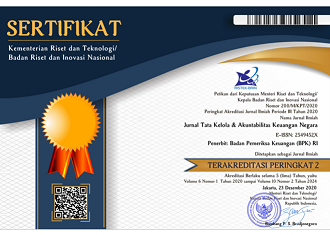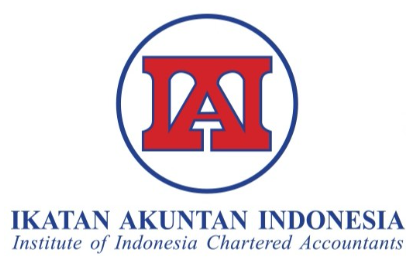International evidence: Supreme Audit Institution oversight and government governance roles in achieving Sustainable Development Goal 1
DOI:
https://doi.org/10.28986/jtaken.v10i2.1779Keywords:
SDGs, No Poverty, SAI, GovernanceAbstract
Poverty reduction is both a key goal and a prerequisite for sustainable development, requiring improved oversight and governance for lasting impact. This study examines the role of Supreme Audit Institutions (SAI) oversight and effective government governance in achieving the United Nations (UN) Sustainable Development Goal (SDG) 1, which focuses on poverty alleviation. This study integrates government governance, SAI oversight, and economic indicators to offer new insights into the factors influencing SDG 1 for poverty alleviation. Using multiple linear regression on data from 116 UN member countries in 2021, this study analyzes the impact of SAI oversight and government governance quality on SDG 1. Gross domestic product (GDP) and gross national income (GNI) serve as control variables to evaluate their role in poverty reduction. The findings indicate that stronger SAI oversight and improved governance significantly contribute to poverty reduction efforts aligning with SDG 1. Economic factors, including larger GDP and country classification (developed vs. developing), also show positive effects, highlighting the role of resources and governance capacity in poverty alleviation. Strengthening SAI oversight and government governance is essential to accelerate SDG 1 achievement, with theoretical and practical policy implications. Economic resources, such as GDP and GNI, are also critical in supporting sustainable poverty reduction.
References
Abhayawansa, S., Adams, C. A., & Neesham, C. (2021). Accountability and governance in pursuit of sustainable development goals: Conceptualizing how governments create value. Accounting, Auditing & Accountability Journal, 34(4), 923–945. https://doi.org/10.1108/AAAJ-07-2020-4667
Alkire, S., Nogales, R., Quinn, N. N., & Suppa, N. (2021). Global multidimensional poverty and COVID-19: A decade of progress at risk? Social Science & Medicine, 291, 114457. https://doi.org/10.1016/j.socscimed.2021.114457
Alsayegh, M. F., Ditta, A., Mahmood, Z., & Kouser, R. (2023). The role of Sustainability reporting and governance in achieving sustainable development goals: An international investigation. Sustainability, 15(4), 3531. https://doi.org/10.3390/su15043531
Barbier, E. B., & Burgess, J. C. (2017). The sustainable development goals and the systems approach sustainability. Economics, 11(1), 20170028. https://doi.org/10.5018/economics-ejournal.ja.2017-28
Breuer, A., Malerba, D., Balasubramanian, P., & Srigiri, S. (2022). Governing the interlinkages between the SDGs: Approaches, opportunities and challenges (1st ed.). Routledge.
Cao, H., Zhang, L., Qi, Y., Yang, Z., & Li, X. (2022). Government auditing and environmental governance: Evidence from China’s auditing system reform. Environmental Impact Assessment Review, 93, 106705. https://doi.org/10.1016/j.eiar.2021.106705
Cordery, C., Arora, B., & Manochin, M. (2023). Public sector audit and the state’s responsibility to “leave no‐one behind”: The role of integrated democratic accountability. Financial Accountability & Management, 39(2), 304-326. https://doi.org/10.1111/faam.12354
Crawford, B., & Dacin, M. T. (2020). Punishment and institutions: A macro foundations perspective. In C. W. J. Steele, T. R. Hannigan, V. L. Glaser, M. Toubiana, and J. Gehman (Eds.), Research in the sociology of organizations (pp. 97-119). Emerald Publishing Limited.
Dacin, M. T., Goodstein, J., & Scott, W. R. (2002). Institutional theory and institutional change: Introduction to the special research forum. The Academy of Management Journal, 45(1), 43. https://doi.org/10.2307/3069284
Dionisijev, I., Bozhinovska Lazarevska, Z., Trpeska, M., & Atanasovski, A. (2023). The supreme audit institution in the Republic of North Macedonia—two decades of building public trust. Journal of Public Budgeting, Accounting & Financial Management, 35(4), 515-535. https://doi.org/10.1108/JPBAFM-08-2021-0129
Dossou, T. A. M., Ndomandji Kambaye, E., Bekun, F. V., & Eoulam, A. O. (2023). Exploring the link between tourism, governance quality, and poverty reduction in Latin America. Tourism Economics, 29(1), 210-234. https://doi.org/10.1177/13548166211043974
Malelea, F. E., & Furqan, A. C. (2024). The role of government internal supervisory apparatus (APIP) and government internal control system (SPIP) in achieving sustainable development goals (SDGs) in Indonesia. KnE Social Sciences, 379-398. https://doi.org/10.18502/kss.v9i20.16541
Fukuda‐Parr, S., & McNeill, D. (2019). Knowledge and politics in setting and measuring the SDGs: Introduction to a special issue. Global Policy, 10(S1), 5-15. https://doi.org/10.1111/1758-5899.12604
Furqan, A. C., Kahar, A., Masdar, R., Andriana, C., Rahmaniyah, F., & Risma, R. (2023). Mechanism of incentives and accountability in rural institutions: Regional context in global dimensions of SDGS. Cogent Economics & Finance, 11(2), 2259274. https://doi.org/10.1080/23322039.2023.2259274
Gorrissen, E. (2020). The role of the INTOSAI Development Initiative (IDI) in strengthening the capacity and performance of supreme audit institutions in developing countries. Journal of Public Budgeting, Accounting & Financial Management, 32(4), 729-733. https://doi.org/10.1108/JPBAFM-08-2020-0146
Hancu-Budui, A., & Zorio-Grima, A. (2023). Supreme audit institutions in Europe: Synergies, institutional transparency, gender equality and sustainability engagement. Journal of Public Budgeting, Accounting & Financial Management, 35(4), 451-473. https://doi.org/10.1108/JPBAFM-07-2021-0116
Hazaea, S. A., Tabash, M. I., Zhu, J., Khatib, Saleh. F. A., & Betami, H. A. (2022). Corruption and supreme audit institutions in the Yemeni public sector: An empirical investigation. Public Administration Issues, (5), 87-109. https://doi.org/10.17323/1999-5431-2022-0-5-87-109
Hickel, J. (2020). The sustainable development index: Measuring the ecological efficiency of human development in the anthropocene. Ecological Economics, 167, 106331. https://doi.org/10.1016/j.ecolecon.2019.05.011
Joshi, D. K., Hughes, B. B., & Sisk, T. D. (2015). Improving governance for the post-2015 sustainable development goals: Scenario forecasting the next 50 years. World Development, 70, 286-302. https://doi.org/10.1016/j.worlddev.2015.01.013
Lassou, P. J. C., Hopper, T., & Ntim, C. (2021). How the colonial legacy frames the state audit institutions in Benin that fail to curb corruption. Critical Perspectives on Accounting, 78, 102168. https://doi.org/10.1016/j.cpa.2020.102168
Laupe, S., Abdullah, M. I., Kahar, A., Saleh, F. Moh., Zahra, F., & Syamsuddin, N. A. (2022). Auditor’s skepticism, forensic accounting, investigation audit, and fraud disclosure of corruption cases. Journal of Governance and Regulation, 11(3), 189-196. https://doi.org/10.22495/jgrv11i3art16
Lauwo, S. G., Azure, J. D.-C., & Hopper, T. (2022). Accountability and governance in implementing the sustainable development goals in a developing country context: Evidence from Tanzania. Accounting, Auditing & Accountability Journal, 35(6), 1431-1461. https://doi.org/10.1108/AAAJ-10-2019-4220
Liu, Q.-Q., Yu, M., & Wang, X.-L. (2015). Poverty reduction within the framework of the SDGs and post-2015 development agenda. Advances in Climate Change Research, 6(1), 67-73. https://doi.org/10.1016/j.accre.2015.09.004
Masdar, R., Furqan, A. C., Masruddin, M., & Meldawaty, L. (2021). The role of transparency and professional assistance in regional financial management in the Indonesian regional governments. Journal of Public Affairs, 21(3), e2666. https://doi.org/10.1002/pa.2666
Meuleman, L., & Niestroy, I. (2015). Common but differentiated governance: A Metagovernance approach to make the SDGs work. Sustainability, 7(9), 12295-12321. https://doi.org/10.3390/su70912295
Mombeuil, C., & Diunugala, H. P. (2021). UN sustainable development goals, good governance, and corruption: The paradox of the world’s poorest economies. Business and Society Review, 126(3), 311-338. https://doi.org/10.1111/basr.12241
Montero, A. G., & Blanc, D. L. (2019, January). The Role of External Audits in Enhancing Transparency and Accountability for the Sustainable Development Goals (Working Paper DESA No.157). https://www.un.org/esa/desa/papers/2019/wp157_2019.pdf
International Budget Partnership. (2022). Open budget survey 2021. www.internationalbudget.org/open-budget-survey
Rahman, A., Elfajri, W., Kartika, R., & Yuskar, Y. (2023). Analysis of the Indonesian supreme audit institution’s strategic response to the SDGs program. Economic Education Analysis Journal, 1(1), 39-51. https://doi.org/10.15294/eeaj.v1i1.77227
Ramprasad, V. (2021). Institutional benefit pathways in development. World Development, 142, 105453. https://doi.org/10.1016/j.worlddev.2021.105453
Rasoolimanesh, S. M., Badarulzaman, N., Abdullah, A., & Behrang, M. (2022). Integrated sustainable urban planning: A new agenda for future urban planning in Malaysia. Journal of Place Management and Development, 15(3), 284-297. https://doi.org/10.1108/JPMD-02-2020-0014
Sadiq, M., Ngo, T. Q., Pantamee, A. A., Khudoykulov, K., Thi Ngan, T., & Tan, L. P. (2023). The role of environmental social and governance in achieving sustainable development goals: Evidence from ASEAN countries. Economic Research-Ekonomska Istraživanja, 36(1), 170-190. https://doi.org/10.1080/1331677X.2022.2072357
Sakinah, H., Furqan, A. C., & Meldawati, L. (2024). Achieving the SDGs through strengthening the capabilities of APIP and corruption control in Indonesia. In Riau international conference on economics, business and accounting, 1(1, Januari) (pp. 185-195). https://riceba.prosiding.unri.ac.id/index.php/riceba-prosiding/article/view/127
Sari, D. A., Margules, C., Lim, H. S., Sayer, J. A., Boedhihartono, A. K., Macgregor, C. J., Dale, A. P., & Poon, E. (2022). Performance auditing to assess the implementation of the sustainable development goals (SDGs) in Indonesia. Sustainability, 14(19), 12772. https://doi.org/10.3390/su141912772
Saud, S. F. S., & Furqan, A. C. (2024). The effort to realize government effectiveness through implementation fully accrual accounting and control against corruption. AKRUAL: Jurnal Akuntansi, 15(2), 128-136. https://doi.org/10.26740/jaj.v15n2.p128-136
Scoones, I., Stirling, A., Abrol, D., Atela, J., Charli-Joseph, L., Eakin, H., Ely, A., Olsson, P., Pereira, L., Priya, R., Van Zwanenberg, P., & Yang, L. (2020). Transformations to sustainability: Combining structural, systemic and enabling approaches. Current Opinion in Environmental Sustainability, 42, 65-75. https://doi.org/10.1016/j.cosust.2019.12.004
Smith, F. H., Retief, F. P., Roos, C., & Alberts, R. C. (2021). The evolving role of supreme auditing institutions (SAIs) toward enhancing environmental governance. Impact Assessment and Project Appraisal, 39(1), 67-79. https://doi.org/10.1080/14615517.2020.1834835
Su, H., Lu, Y., Lyulyov, O., & Pimonenko, T. (2023). Good governance within public participation and national audit for reducing corruption. Sustainability, 15(9), 7030. https://doi.org/10.3390/su15097030
Sulaiman, N. A., & Mat Yasin, F. (2022). Audit committee oversight of external audit: An examination of structural power and behavioral tactics. Meditari Accountancy Research, 30(6), 1571-1593. https://doi.org/10.1108/MEDAR-12-2019-0630
Sułkowski, Ł., & Dobrowolski, Z. (2021). The role of supreme audit institutions in energy accountability in EU countries. Energy Policy, 156, 112413. https://doi.org/10.1016/j.enpol.2021.112413
United Nation. (2015). Transforming our world: The 2030 Agenda for Sustainable Development: Resolution/adopted by the General Assembly. https://digitallibrary.un.org/record/3923923?v=pdf
United Nation. (2022). Goal 1: End poverty in all its forms everywhere. https://www.un.org/sustainabledevelopment/poverty/
Winden, E. V. (2017). Auditors of sustainability: Exploring the role of supreme audit institutions in the implementation of the sustainable development goals [Master thesis, Utrecht University]. UU Thesis Repository. https://studenttheses.uu.nl/handle/20.500.12932/26921
Downloads
Submitted
Accepted
Published
How to Cite
Issue
Section
License
Copyright (c) 2024 Jurnal Tata Kelola dan Akuntabilitas Keuangan Negara

This work is licensed under a Creative Commons Attribution-ShareAlike 4.0 International License.

Jurnal Tata Kelola dan Akuntabilitas Keuangan Negara is licensed under
a Creative Commons Attribution-ShareAlike 4.0 International License





















